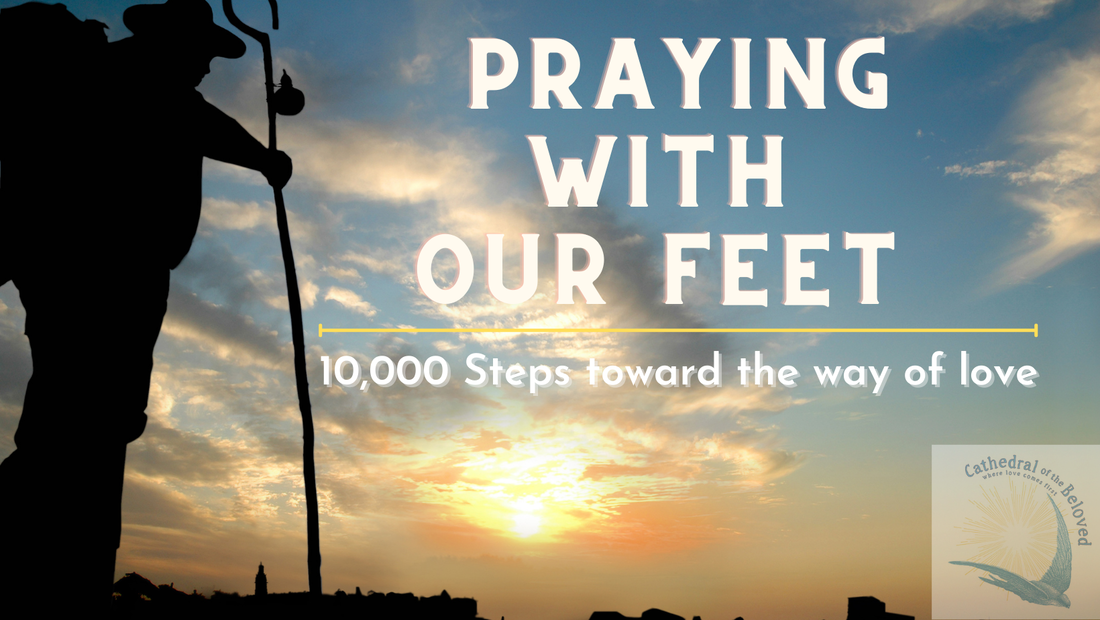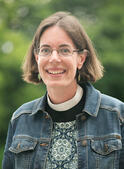|
“Tears, Snot and All”
All Saints Sermon The Rev. Jennifer Gregg John 11:32-44 November 7th, 2021 I wish I could tell you how many times I have heard people say, “I just feel really awful.” -or-“I am going through such a hard time right now.” AND “I can’t cry in church.” Too many to count. Maybe you are one of these people or maybe you think this,and haven’t said it. Crying is giving ourselves permission to let go. To let go of the grief of the world, of our laments, of our fears, of all the ways the world breaks our hearts open. It is normal and it is healthy. And I think there is still this notion that when we come before God, we want to be all cleaned up: to be at our “Sunday best.” We may not be wearing fancy hats or our best dress or suit and tie. Those days for most New Englanders are long gone. Emotionally though, we button up. Put on our finest smile, psych ourselves up. Hoping that if we convince others we are “good”, we might just convince ourselves. Let me be clear, You do not have to have it all figured it out or be at your Sunday best. Sometimes our Sunday best is just the fact that we mustered enough energy to roll out of bed and show up…. Sometimes our Sunday best is letting ourselves land here exhausted and overwhelmed, as we weather a difficult season in our lives…. Sometimes our Sunday best is finding a safe place where we can lament and be angry in the presence of a pastor, a friend, a pastoral care provider, who will listen with us long enough that we can see a situation differently or point us in the direction of resources… Sometimes our Sunday best is giving ourselves permission to not be at our best and letting whatever comes…..come. And this my friends, is enough. So, if the tears come, let them. And as they do, we as a community of faith, do not have to be too quick to jump up and get the tissue box. We might ask how this reinforces the desire to be at our “Sunday best,” to be all “cleaned up”? You and your tears are holy and beautiful. Jesus came into the world to meet us where we are and to enter our reality: in our tears, in our questions and frustrations. And today, we are given the opportunity to meet Jesus right where he is – as he weeps. As Mary approaches Jesus, she is beside herself. Her brother Lazarus is dead. She is angry, lamenting (and I paraphrase), “Dagnabit Jesus! If you had been here my brother would not have died.Where were you?!” The news of Lazarus death coupled with Mary’s emotions, moves Jesus. Jesus did not stifle his tears, swallow the lump in his throat. He let the lump rise, allowing his own memories of Lazarus to come, allowing in Mary’s distress. He let his tears spill over and run down his face. Jesus did not jump over this moment, even if he knew what was possible or what would come next. He honored it in himself and in others. He knew that this ground, the place of weeping, was just as holy as the next. It is being in this place of grief and of tears, that allows for new life to come. And it needs its own space. We live in a world right now where grief is layered upon grief. And there is not a good outlet. 700,000+ lives lost in the last two years. There are no words. Jesus weeps. While we weep. And as we do, a great cloud of witnesses who are both known and unknown gather around us. Saints, who have weathered the pain and turmoil of this world in their own day and time. And just as they may have prayed for us and encouraged us on our way while they were walking with us on our earthly pilgrimage, might they just be doing the same now? Earlier this week I read a sermon by Brother Curtis Almquist from Society of St. John the Evangelist who speaks to this question. He writes: “There are reasons why we may be attracted to particular people, and there are reasons why we may be attracted to particular saints. But I would say it’s two-sided. We may be attracted to particular saints because they are attracted to us, this “thin divide” between earth and heaven, between this life and the next. The most ancient of the church’s creeds, the Apostles’ Creed, affirms that “we believe in the communion of saints” (that’s our communion with the saints), the resurrection of the body, and the life everlasting.” (1) There’s something real about the communication between this world and the world to come, a kind of communion between saints and souls and sinners that spans the gulf of time. It is not just we who are praying, but we are being prayed for by a great cloud of heroic witnesses…”[1] “We are being prayed for by a great cloud of heroic witnesses…” How might this knowledge comfort you in your moments of grief, that those you love and long for are just as close as your very breath? While we find our way through this time, what a gift to recognize that we are being prayed for by those we have loved and lost, who are still rooting for us in all the same ways that gave us strength when we could see them face to face. The saints were not people who had it all together and were all cleaned up. Their “Sunday best” came with all the ebbs and flows that we have in our own life. And they continued to show up even in the times that were difficult with transparency and honesty. This is where their beauty lies. And so as we sing a song of the saints of God, “who were patient, brave and true, who toiled and fought, lived, wept and died….for the Lord they loved and knew.” May they help us to be present to our life, in this moment, too. [1] To Read Br. Almquist’s entire sermonThe Saints, Our Heroes, please go to: https://www.ssje.org/2014/11/02/the-saints-our-heroes-br-curtis-almquist/
8 Comments
For centuries, God's people have been sojourners, Pilgrims journeying through place and time to seek a deeper connection with the divine. Time and again God calls: Out of familiar lands and off of sandy shores. Out of suburban sprawls and cityscapes Into a way of love grounded in honoring the dignity of every human being. Asking us to co-create a world where each person can live into the fullness of who they are created to be. This summer we continue the journey not to a far off destination, but to our own backyards. To Pittsfield, Sheffield, North Adams....Chicago, Baltimore or wherever we find ourselves. Because God with us is always as close as our next breath or our next door neighbor. And so we set out: To see our communities from a place different from the one in which we now stand. To hear stories of others journeys and honor their lived experience To touch the beauty and fragility that lie in every human heart. To know ourselves and each one we meet as beloved. We walk, traveling through our communities, knowing God is already there. Our journey begins with a single step. 9,999 more will follow each day. As we learn what it means to pray with our feet. Here on this page, you will find inspiration for your journey. Invitation to meet us in community in person and online. As we walk we will sing. #musicmeditations As we walk we will meet others who walk alongside. #WalkingWednesday As we walk we will rest. #compline #morning prayer We look forward to walking with you. |
ArchivesCategories |
Sunday Service Location
|
Contact Us413-344-8262
Email: CathedraloftheBeloved@gmail.com Mailing Address: Cathedral of the Beloved, 67 East Street, Pittsfield, MA 01201 Sunday Service Location: First United Methodist, 55 Fenn St, Pittsfield, MA 01201 |
Copyright © 2024 Cathedral of the Beloved


